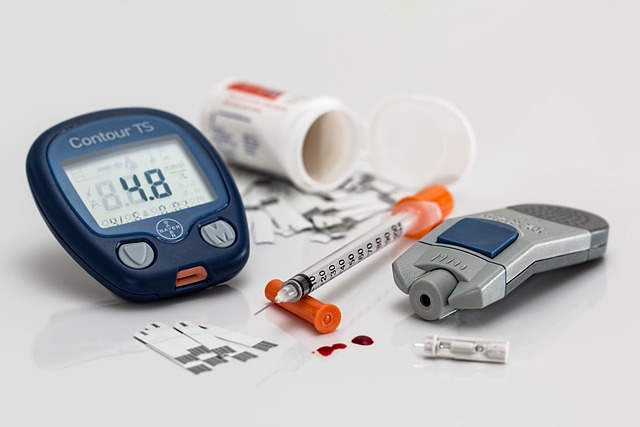Understanding Diabetes Treatment and Serious Complications
Discover diabetes and its common complications, including nerve damage, vision issues, kidney problems, and cardiovascular risks. Understanding these challenges highlights the importance of proper management, regular check-ups, and lifestyle choices to support long-term health and well-being.

What Are Diabetes and Its Most Common Complications?
Diabetes occurs when the body cannot properly regulate blood sugar levels, either due to insufficient insulin production or insulin resistance. The most common complications include cardiovascular disease, which affects nearly two-thirds of people with diabetes. Diabetic neuropathy, or nerve damage, develops in approximately 50% of patients and typically affects the feet and hands first.
Kidney disease, known as diabetic nephropathy, represents another serious concern, potentially leading to kidney failure requiring dialysis or transplantation. Eye complications, particularly diabetic retinopathy, can cause vision problems and blindness if left untreated. Poor wound healing and increased infection risk also characterize this condition, sometimes necessitating amputations in severe cases.
Common Health Complications Caused by Diabetes
Cardiovascular complications remain the leading cause of death among people with diabetes. High blood sugar levels damage blood vessels and nerves controlling the heart, increasing the risk of heart disease, stroke, and high blood pressure. Adults with diabetes face twice the risk of heart attack or stroke compared to those without the condition.
Diabetic kidney disease develops gradually as high glucose levels damage the kidney’s filtering system. Early stages often show no symptoms, making regular screening essential. Advanced kidney disease may require significant dietary changes, medications, and eventually dialysis or kidney transplantation.
Foot complications arise from a combination of poor circulation and nerve damage. Minor injuries can develop into serious infections due to reduced healing capacity and diminished sensation. Regular foot examinations and proper care become critical components of diabetes management.
Diabetes Complications and Their Warning Signs
Early warning signs of cardiovascular complications include chest pain, shortness of breath, irregular heartbeat, and excessive fatigue during normal activities. Swelling in the legs, ankles, or feet may indicate heart or kidney problems requiring immediate medical attention.
Neuropathy symptoms typically begin with tingling, numbness, or burning sensations in the toes and feet, gradually progressing upward. Some people experience sharp, shooting pains, while others lose sensation entirely, increasing injury risk. Digestive problems, bladder issues, and sexual dysfunction can also result from nerve damage.
Kidney disease warning signs include persistent swelling, changes in urination patterns, fatigue, nausea, and difficulty concentrating. Eye complications may present as blurred vision, dark spots, flashing lights, or difficulty seeing at night. Any sudden vision changes require immediate medical evaluation.
Treatment Approaches and Management Strategies
Modern diabetes treatment focuses on maintaining blood sugar levels within target ranges through multiple approaches. Medication options include insulin therapy, metformin, and newer drug classes like GLP-1 receptor agonists and SGLT-2 inhibitors. Treatment plans are individualized based on diabetes type, severity, and patient characteristics.
Lifestyle modifications play an equally important role in management. Regular physical activity improves insulin sensitivity and helps control blood sugar levels. Nutritional counseling helps patients understand carbohydrate counting, portion control, and meal timing strategies.
Continuous glucose monitoring and blood glucose meters provide real-time feedback, allowing for better treatment adjustments. Regular medical monitoring includes hemoglobin A1C testing, blood pressure checks, cholesterol screenings, and examinations for early complication detection.
| Treatment Type | Provider Examples | Estimated Monthly Cost |
|---|---|---|
| Basic Medication Management | Primary Care Physicians, Endocrinologists | $200-500 |
| Intensive Insulin Therapy | Diabetes Specialists, Endocrine Clinics | $300-800 |
| Comprehensive Care Programs | Integrated Health Systems, Diabetes Centers | $400-1200 |
Prices, rates, or cost estimates mentioned in this article are based on the latest available information but may change over time. Independent research is advised before making financial decisions.
Prevention and Long-term Outlook
Preventing complications requires consistent blood sugar control, regular medical care, and healthy lifestyle habits. Many complications can be prevented or their progression slowed with proper management. Regular screening allows for early detection and intervention before complications become severe.
Support systems, including diabetes education programs and support groups, provide valuable resources for long-term success. Local healthcare providers often offer diabetes self-management education programs that teach practical skills for daily management.
Technology continues to advance treatment options, with innovations in insulin delivery systems, continuous monitoring devices, and telemedicine consultations improving access to specialized care.
Effective diabetes management requires a comprehensive approach combining medical treatment, lifestyle modifications, and regular monitoring. Understanding potential complications and their warning signs enables early intervention and better outcomes. While diabetes presents significant health challenges, proper treatment and self-management can help people with diabetes live full, healthy lives while minimizing complication risks.
This article is for informational purposes only and should not be considered medical advice. Please consult a qualified healthcare professional for personalized guidance and treatment.




